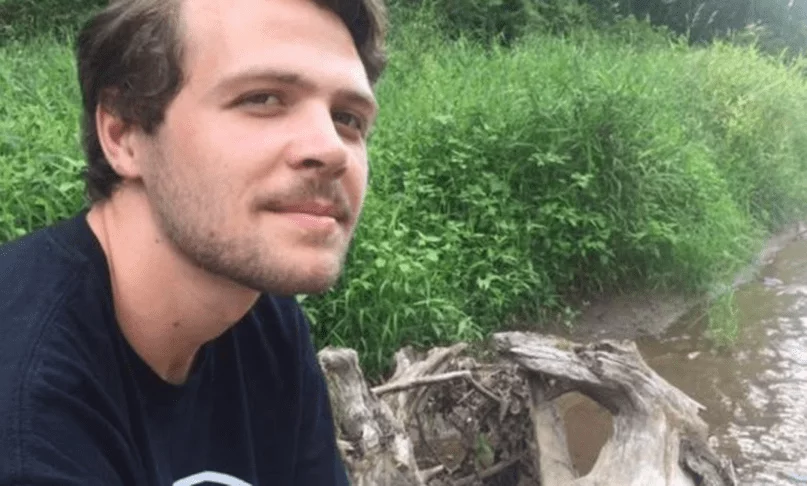Six years ago, Jonathan Wall moved to California, eager to step the right foot into the cannabis industry. After high school Wall spent time couch surfing while in Baltimore. But now he sits in federal prison awaiting trial on federal cannabis conspiracy charges, which could result in a 15-year sentence. He was also one of 150 incarcerated people at his prison to test positive for COVID-19 last year. Click here to read High Times’ feature on Wall’s “gray area” legal position that keeps him behind bars. Additionally, visit FreeJonathanWall.com for more information and updates.
Unfortunately, Wall’s story is one similar to so many impacted by the drug war within the investment-heavy, burgeoning legal cannabis industry. NisonCo PR staff writer Adryan Corcione spoke with Jonathan Wall’s mother, Mitzi, about her struggles while advocating for her 26-year-old son behind bars.
Mitzi Wall wants to speak with more journalists about her son’s story. If you’re interested in being connected, please email us at Adryan@NisonCo.com to be connected.
Adryan Corcione: Your son has been incarcerated for a year now. What impact has this had on your family?
Mitzi Wall: It’s impossible to convey the true impact Jonathan’s unjust incarceration has had on our family. The psychological, physical, and financial toll this [experience] inflicts upon the family members of those incarcerated is unconscionable to the average person. Obviously, there is the continuous concern as a parent for our son’s wellbeing and the persistent worry of him being in what is to be considered one of the worst facilities in the United States. The security level of the Chesapeake Detention Facility is classified as a maximum/supermax jail for federal pretrial detainees.
The emotional struggles are not something that you can just turn off. They are with you 24 hours a day. It’s difficult to think about anything else. Beyond the normal struggles, there are certainly other collateral consequences — including fractured relationships between family members and balancing my advocacy for Jonathan, while consciously being aware of the emotional and physical toll it takes on one’s health while trying to navigate this process.
AC: In your own words, will the MORE Act truly free your son from the criminal justice system?
MW: Jonathan is being charged with conspiracy to distribute marijuana. As marijuana is defined as a Schedule I drug within the Controlled Substance Act, the harshest penalties are given, as it relates to incarceration which carries mandatory minimum sentences. So yes, the MORE Act will decriminalize marijuana and remove it as a DEA Schedule I drug, therefore changing both the sentencing arena and the felony conviction that goes along with it, as well as the expungement arena which means so much to the person leaving prison. Beyond assisting Jonathan, the passing of this legislation would recognize and address the systematic failures often present within the criminal justice system and also help thousands of others.
AC: What advice do you have for families impacted by the drug war going through similar hardships?
MW: Educate yourself on the history of the drug war and the laws that accompanied it. Understand the differences between federal and state laws.
Research the current Congressional bills that relate to Comprehensive Marijuana Reform by signing up for daily newsletters such as Marijuana Moment, which gives you a daily rundown of federal, state and local legislation. Write to your representatives and sign petitions.
Find every advocacy group out there like the Last Prisoner Project and Brittany Barnett’s Buried Alive Project.
Recognize the hardships and don’t recoil from the help, support and assistance from others. Acknowledge that the legal process is a marathon rather than a sprint.
Try to understand not only the laws, but current legislation and specifically what these advocacy groups can provide you. I feel as if I’m not only doing something to help but [these resources] also provide me hope. Hope is critical to families suffering with incarcerated loved ones.
AC: What message do you have for cannabis supporters looking to get more involved in advocacy?
MW: As concerned citizens, contact your Congressional and state representatives. Join a special interest group that aligns with the objectives of marijuana decriminalization and help educate others. Jonathan’s plight is personal to me. However, the fight for the injustices ingrained within the stories of thousands of incarcerated people for marijuana offenses should invoke both outrage and support of every citizen in this nation.
Politicians will never see incarcerating millions of people since the early 1970s, as a system of control. We must continue to convey what a tragedy this is and be advocates for those incarcerated. Due to influence by big money and partisan bickering, politicians are faltering in their duties and responsibilities to the American people. This egregious miscarriage of justice must be repealed. They should feel shame and we should let them know.
AC: Anything else that you would like to add that I haven’t asked about?
MW: President Biden and Vice President Harris ran on the platform of righting the wrongs of the War on Drugs. They have both admitted their mistakes while being a senator and prosecutor by supporting punitive legislation and they promised to make reforms. Where are those changes? When are they going to do what they promised and decriminalize marijuana? When are we going to hold them accountable?
One really has to wonder why our government wants to spend millions of dollars a year incarcerating thousands of people for nonviolent, first-offense marijuana charges. It is a barbarity that anyone in this country is being prosecuted, incarcerated, and put into a cage for marijuana. It’s a human rights violation at best.
This interview has been lightly edited and condensed for length.
For those actively advocating for social equity in the cannabis space, feel free to reach out to us. We also offer pro bono services to help promote your contributions to justice in the marijuana industry.



